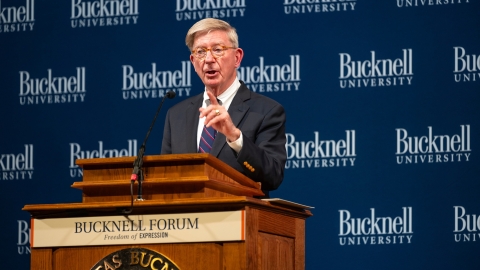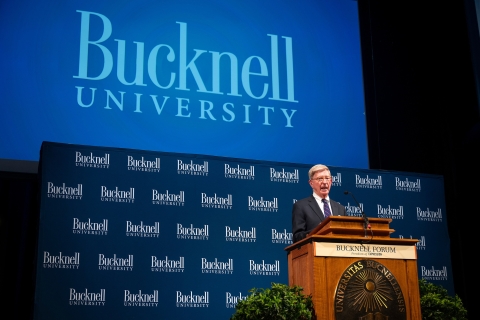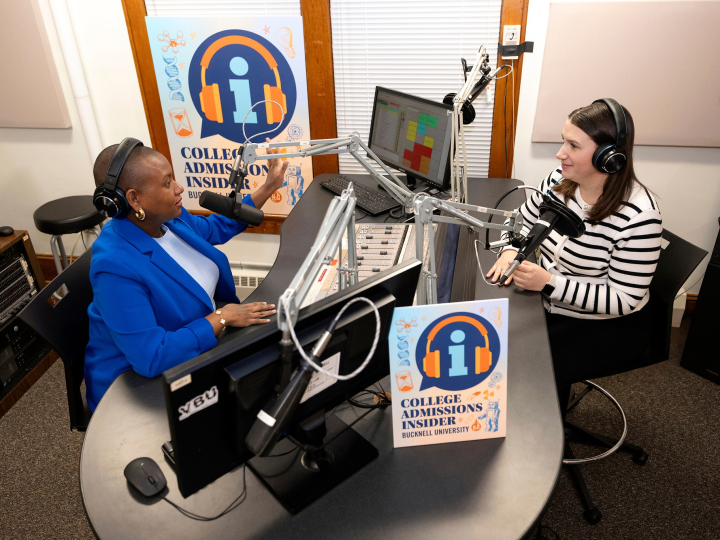
Political Columnist George F. Will Opens Bucknell Forum with Thoughts on Free Speech
September 20, 2023
Conservative George F. Will is the country's most widely read political columnist. Photo by Emily Paine, Communications
There's no shortage of quotes from famed figures positing that "everything is political." For conservative Washington Post columnist George F. Will, the politicization of everything threatens Americans' right to say anything.
Will shared his thoughts on politics and free speech as the first speaker in Bucknell's 2023-24 Forum series, centered on "Freedom of Expression." Following a private question-and-answer session with students, the writer gave a keynote address to an engaged audience on Sept. 19 at the Weis Center for Performing Arts.
In addition to producing pieces for the Washington Post's opinion section (syndicated in hundreds of newspapers across the country), Will is a regular contributor to MSNBC and NBC News, and previously provided decades of commentary on ABC's This Week. He won the Pulitzer Prize for Commentary in 1977.

Prior to his keynote address at the Weis Center for Performing Arts, George Will met with Bucknell students for a question-and-answer session. Photo by Emily Paine, Communications
In his remarks to the Bucknell community, Will pushed back on what he views as the enveloping nature of today's politics: influencing society's consciousness has become a governmental pursuit.
If individuals are believed to be fully formed by their culture, "then controlling the culture becomes imperative, and politics must saturate every nook and cranny of life. This saturation will inevitably mean controlling what people say and hear and read and think and teach," Will said. "Ultimately, this idea is the source of totalitarianism, which is the totalizing of politics."
What follows, Will posed, is an effort not dissimilar to McCarthy's red hysteria or Lenin's Communist project — censorship. "They say that everything said or read or written or thought or taught affects the social system that envelops and shapes everyone's situation. … Such people will necessarily believe that they are directly harmed by any speech and all ideas that [reverse] progress as they understand progress," he said. "Today, it is said that the existential crisis that justifies censorship is systemic racism or climate change — there is always some crisis."

George F. Will pushed back on what he views as the enveloping nature of today's politics: influencing society's consciousness has become a governmental pursuit. Photo by Emily Paine, Communications
Will pinpointed social media as a current battleground, where calls for content moderation encourage the government to decide what is disinformation or misinformation by disfavoring ideas thought to be on the wrong side of history.
He also challenged universities that take institutional stances on political issues and require faculty to affirm diversity, equity and inclusion. "It excommunicates those on campus who disagree and places them at the margin, or even outside of the community, and implicitly declares them unwelcome."
For Will, the health of American government, politics, education and more rests on open discourse and free inquiry.
Up Next
The Bucknell Forum speaker series will continue this fall with Jon A. Shields on Oct. 17. Shields is a professor of American politics and chair of the government department at Claremont McKenna College and author/co-author of three books on the American right.

